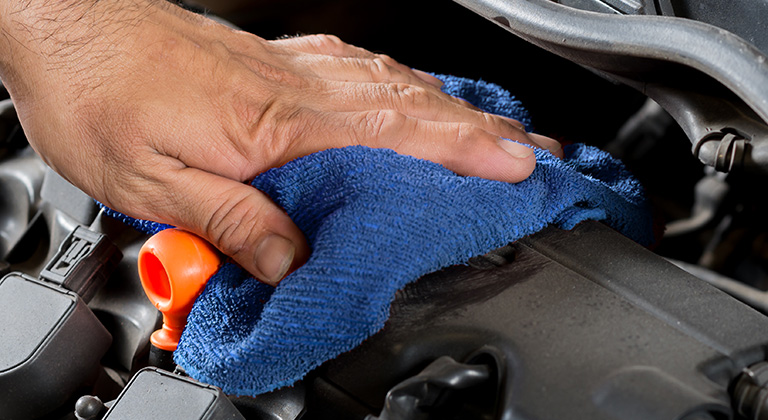Avoiding waste rag fires
Tips on proper storage of waste rags
It’s not uncommon for cleaning agents, solvents, and petroleum-based products to be used in manufacturing and service industries. Often, rags are used to apply those products. But it’s what you do afterwards with them that may mean the difference in avoiding fires.
When a cloth soaked in a flammable or combustible liquid begins to dry, it can generate heat through a chemical reaction called oxidation. If that heat can’t dissipate safely because the rags are piled together or confined, internal temperatures can get hot enough for them to ignite spontaneously. But it’s not just oxidation you should worry about. Any fire source or spark could also cause those rags to burn.
The best way to control the danger is to put any wiping rags, waste, and oily material in a covered metal waste can. These are designed to be air-tight and keep oxidation from starting. Also, don’t mix other refuse with oily waste since this could increase the fire hazard and may increase disposal costs.
We recommend only UL-listed or FM-approved waste cans be used. These are made and tested to give maximum fire hazard protection and are widely available from general equipment vendors. Another option is a detachable UL- or FM-approved self-closing drum cover. It can be attached to a 30- or 55-gallon steel drum to make a waste can. The self‑closing metal cover is necessary to prevent oxidation from occurring or a fire from spreading outside the drum.
All waste cans should be emptied at the end of each day and their contents disposed of safely. Employees should be reminded to use only the amount of rags needed for the job. This will help to minimize waste and reduce the amount of fuel available to a fire.
By taking these simple precautions, you can help protect your business from the dangers of a spontaneous fire.
Related resources
Avoiding negligent entrustment
You know the importance of having good employees. But did you know having ones with poor skills my cost you? We’ll explain negligent entrustment.
Protecting a customer’s financial information
Keeping customers’ sensitive financial information secure from thieves is a challenge for any business. But there are ways to help you do it. We have some tips.






